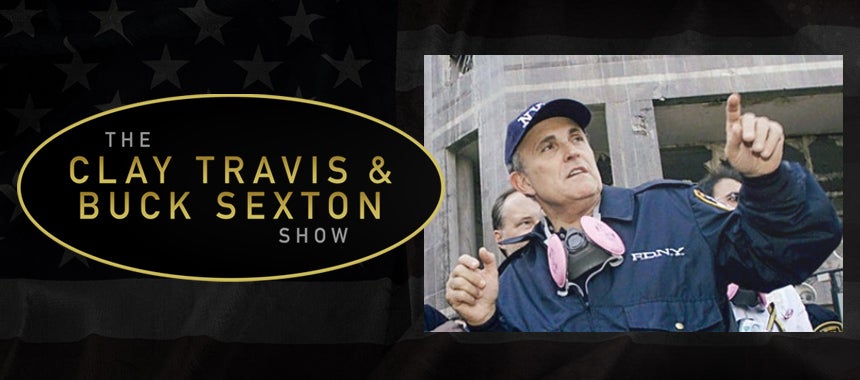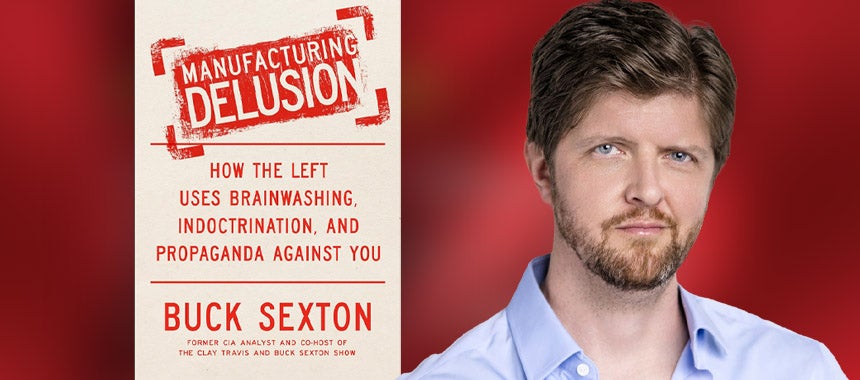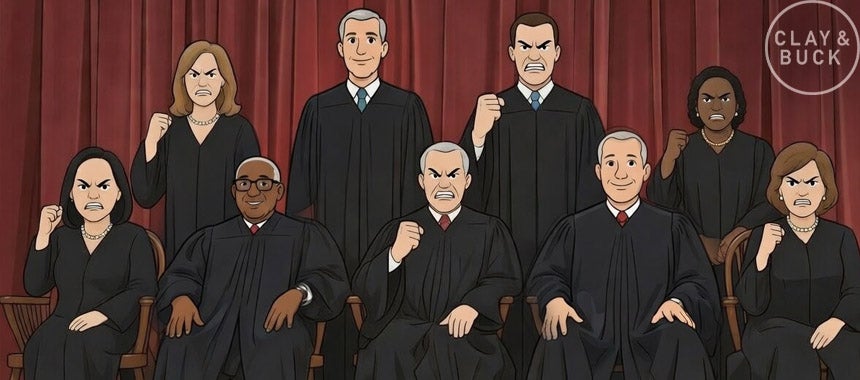Rudy Giuliani Shares His Reflections on 9/11
10 Sep 2021
BUCK: We are joined now by somebody who certainly was in the center of that storm and has a very particular perspective on it, the former mayor of New York City, former U.S. attorney for the Southern District of New York, and you can follow his work at RudysCommonSense. Rudy Giuliani, good to have you on, sir.
GIULIANI: It’s an honor to be on. Thank you.
BUCK: What was it like that day? Take us back, ’cause I think one of the most important things for people now as part of the reflection is to make sure we don’t forget, that we don’t forget both what it was to be attacked in that way but also the heroism of those who ran into the towers, who sacrificed themselves and how America rallied. But take us into those initial moments when you were the mayor of America’s largest city on September 11th, 2001.
GIULIANI: Well, it was… I mean, it was like being in hell. It was more like being in battle than would be an urban situation. When I realized that it was a terrorist attack for sure, which was when the second plane came in, I was probably one mile from the building heading down there to join my police commissioner.
And then when I got to the site, people were jumping out of the buildings, some of them were hitting people on the ground, debris was hitting people and knocking them down. And I went up to the fire department command post and made sure that the fire department had the resources.
And also, I needed to divide the commands so the fire department was in charge of the fire and doing everything they could to save people, and the police department was in charge of guarding the rest of the city. People don’t realize at the time when I finally got the White House, they told me that there were seven to 12 planes still unaccounted for.
That Vice President Cheney had sent out jets that hopefully would keep them away from the city, but I should consider the possibility that there would be follow-up ground attacks which we had already assumed. Our plan for that was to send our terrorism task force to those sites that we think they’re gonna hit.
So Bernie Kerik dispatched them to places like the Stock Exchange, the Empire State Building. We also emptied all those buildings out immediately. That list… Oh, gosh, that list has been compiled over 20 years. I used to prosecute the cases of the joint terrorism task force; so I knew it intimately.

And that list is built up over time. When you pick up terrorists and you take everything they have, they have plans with them for bombings. So out of those plans, you develop a list of what are they most interested in doing? And the number-one target, by the way, was the Stock Exchange, not the World Trade Center.
And we had a triage the hospitals, and it was a terrible… It was an exercise in saying to yourself, “I’m not gonna think about what’s happening now. I’m gonna just keep my mind focused on what’s the right decision,” and then pray to God that it was right.
Luckily, I was a mayor for 7-1/2 years, I had been through virtually every kind of an emergency you could imagine. I also started the first mayor’s Office of Emergency Management. We never had one before. I did that the second day I was in my office.
And we did a lot of training. And we did a lot of training at the World Trade Center. So I did feel a certain confidence that we would know what we were doing, but also very challenged by the fact that this was way beyond what we anticipated.
CLAY: I know, Mr. Mayor, that you had so many friends and family members and people that you knew well in those buildings also working with the police department and the fire department. How do you balance out in that moment of incalculable tragedy the personal, but also at the same time the responsibility you have as a mayor? How hard was that to balance the humanity and also the job?
GIULIANI: It was hard. I had learned how to do it with Flight 800, another airplane crash; building collapses; hostage situations; West Nile Virus. We had been through so many emergencies. You learn how to keep yourself focused on the emergency. And we also had emergency plans for about 22 different situations.
So we did a lot of tabletop exercises. So there was a certain… You know, I played a role. I was the mayor. I was in charge. I had to make decisions. I also knew that I had enormously competent people. So I never had like a… If I gave a task to Chief Esposito, I knew I had a, you know, a 25-year cop who’d been through everything.
Or if I gave a task to Rudy Washington, who was my deputy mayor in charge of transportation, I knew he’d be able to clear the area out for the fire department so that people could get back and forth. Or if I just gave the order to my other deputy mayor who was in charge of hospitals. “You gotta triage the hospitals in the area.”
I didn’t have to explain to him how to triage the hospitals. He had done it 20 times before. So there was an advantage that I had in having an extraordinarily experienced, talented group of people; otherwise, I could have made the right decision and they could have executed them incorrectly.
BUCK: We’re speaking to former mayor of New York City on September 11th, 2001, Rudolph Giuliani. And, Mr. Mayor, NYPD and FDNY — the fire department of the City of New York — lost a lot of their men and women that day. And in the aftermath of the initial towers coming down, there was a tremendous amount of work that city employees and folks had to do. I just wanted to hear you speak to how you saw people come together and the rallying that occurred in this city and for the whole country in the aftermath.
GIULIANI: I thought it was magnificent. Right that very day, the firefighters put their flag up. The flag almost like Iwo Jima, which was very, very meaningful to me because I had just read Brokaw’s book on the Greatest Generation. And there was always the question, you know, could they handle it.
And when I saw those firefighters, I said to myself, “These are the sons and grandsons of the people who won the Second World War. They got it. They still got it,” and I knew some of those guys, and they were on top of a pile with about 3,000-degree fire below them, and they didn’t give a damn.
They went up, put the flag up, and basically they were saying, “We’re coming for you, pal. We’re not gonna… You know, to hell with Bill Clinton who three times slapped you on the wrist when you killed Americans. We’ve got a different president now and it’s gonna be a different situation.” Everyone felt that.

I told my police commissioner, “Thank God Gore didn’t win,” and what I meant by that was, I knew about bin Laden for 2-1/2 years. I had being warned he was gonna come and hit us 2-1/2 years earlier. As a result of the FBI briefings, I had to close down the area around the federal courthouse, because we had some of his people on trial.
I had to close down the area around the Stock Exchange, City Hall. We would at least three or four false warnings he was gonna attack us. And every time he did attack us overseas, Clinton would go bomb an empty field. I would get enraged. I would say… I mean, I investigated Arafat in the eighties and knew that he murdered 27 people. I couldn’t understand what Clinton was doing sucking up to him.
CLAY: Tomorrow —
GIULIANI: I think a lot of the problems in the Middle East come from that. So I was not a fan of Bill Clinton’s, the way in which he treated Bin Laden.
CLAY: Tomorrow is —
GIULIANI: I thought it was encouraging in the way Biden is doing now, the usual Democrat response. Slap ’em on the wrist instead of knock ’em into the next day.
CLAY: We’re talking to Rudy Giuliani, mayor of New York City on September 11th. Twentieth anniversary of this tragedy tomorrow. You mentioned George W. Bush and the iconic moments and responses with the megaphone standing on the wreckage.
GIULIANI: Oh, God I was right there.
CLAY: What was your recollection of that moment and how important… Yeah, you were right there. What was that moment like with George W. Bush there?
GIULIANI: I was right there, right below him. I pushed the firefighter up with the megaphone. He was a retired firefighter. He was 70 years old that guy, and he gave him the megaphone and stood next to him, and Bush put his arm around him. That was… First of all, Bush was in a great deal of danger at that time. People should know that.
Not just the possibility of being taken out by the terrorists, but that site was inherently dangerous. There was a fire below ground. I don’t know how many degrees Fahrenheit, but gigantic, and it was no way to know where it would break out. I could be talking to a commissioner or someone, and in between us a fire could break out. So we did the best we could, Governor Pataki and I, to find the right spot for him.

The Secret Service was really angry at us for encouraging him to go down there, and every minute he was there I kept thinking, “Oh, my gosh. If something goes wrong…” And he stayed forever. I mean, he gave those remarks, and those were inspiring. But people don’t realize he shook hands with a hundred people.
He was supposed to shake hands with six people symbolically and leave. And instead of that he went into the crowd, and he shook hands with about a hundred people. And I loved it because we had a morale issue with people there that were searching, they were searching for their sons, their brothers, their friends.
It wasn’t professional; it was personal. And he just lifted their spirit. And when he said, you know, “They’re gonna hear from us,” they knew what he meant. He’s a tough guy. They knew he meant enough of the playing around with the terrorist. It’s time to…
It’s time to let ’em know we’re the United States and you don’t screw around with us. Just exactly the opposite of what Biden just did. This 20th anniversary, many people — I just finished with of you with my deputy mayors — is the worst we’ve had. Because we’re back where we were. It’s like back to the past.
We’re back on the day before 9/11 with Taliban in charge. Al-Qaeda doubled their number of people in the last two weeks. You know what the Haqqani Network is planning. They may not be able to do it immediately, but they’re gonna do everything they can to come back and attack us.
And every time Biden uses a drone attack on people we can’t even name — we don’t know who the hell he hit — they just laugh at him. And if they just watch him on television, they laugh at him. They see a senile old man who wants to be partners with them.
It’d be like if I wanted to be partners with the Mafia. I mean, it’s inane. We got people running that government that are wanted. I tell some of my police and military buddies, “We should get a group together. We should go capture Haqqani. We should bring him back and collect the $10 million reward and give it to Tunnel to Towers.” We got a guy that’s got a $10 million bounty on his head that’s running the interior department, which means the police. It’s pathetic.
BUCK: Well, Mr. Mayor, as an American and as a fellow lifelong New Yorker, I just want to say thank you for your service to your city, to your country, and for being with us today on the day before the anniversary of 9/11.
GIULIANI: Thank you.
BUCK: Thank you, sir, always an honor to talk to you.
GIULIANI: Thank you very much. God bless. Bye.
Recent Stories

Soren Aldaco: A Detransitioner's Story
One of our most powerful interviews in recent memory. Don't miss it.
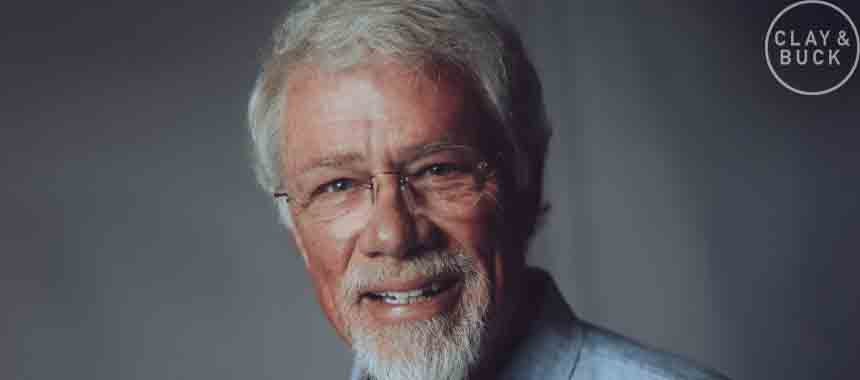
Jeff Hays, Director of MAHA Uncensored, a Hard Look at the Business of American Medicine
An inside look at what drives the American medical system.
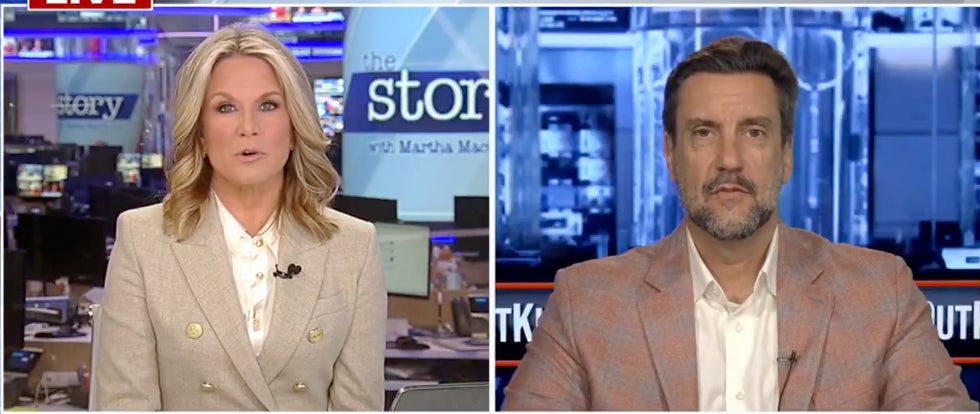
Clay Praises Alysa Liu's Gold Medal for the USA
Miss Clay on The Story with Martha MacCallum? Watch it here.


